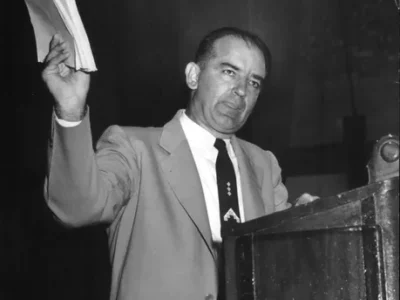The CEQA Streamlining “Slippery Slope” May Help Rail Transit

But what if a little bit of slippery slope leads to some good environmental outcomes? Case in point: Assemblyman Mike Feuer’s newly introduced legislation AB 1444, which expands the circle of eligibility for the CEQA streamlining provisions of AB 900 to public rail transit projects. (AB 900, as you may recall, created a special club for certain $100 million projects, subject to the Governor’s review, to be eligible for fast-track approval process at the state Court of Appeal for any CEQA challenges.)
Public transit is the poster child for the kind of environmentally benign development that CEQA should be encouraging, not discouraging, if the law is truly about better environmental outcomes. Transit gets people out of cars, serves low-income constituents who might otherwise drive gas-guzzling clunkers, and provides a critical alternative to road and highway construction. While some rail transit may chew up open space or farmland, most urban rail transit serves existing neighborhoods, concentrating development where we need it. Of course, rail transit can create major impacts worth analyzing in advance, such as the potential to destroy historical resources, gentrify neighborhoods, or create safety hazards. But taking years to study these impacts, while driving up costs and gerrymandering routes based on lawsuits, seems like a very un-environmental outcome. However legitimate the criticism has been of CEQA reforms like AB 900, it’s a good deal for California if we can help speed construction and lower the cost of rail transit. In this case, CEQA streamlining may not be such a bad place to slip to.







2 Replies to “The CEQA Streamlining “Slippery Slope” May Help Rail Transit”
Comments are closed.